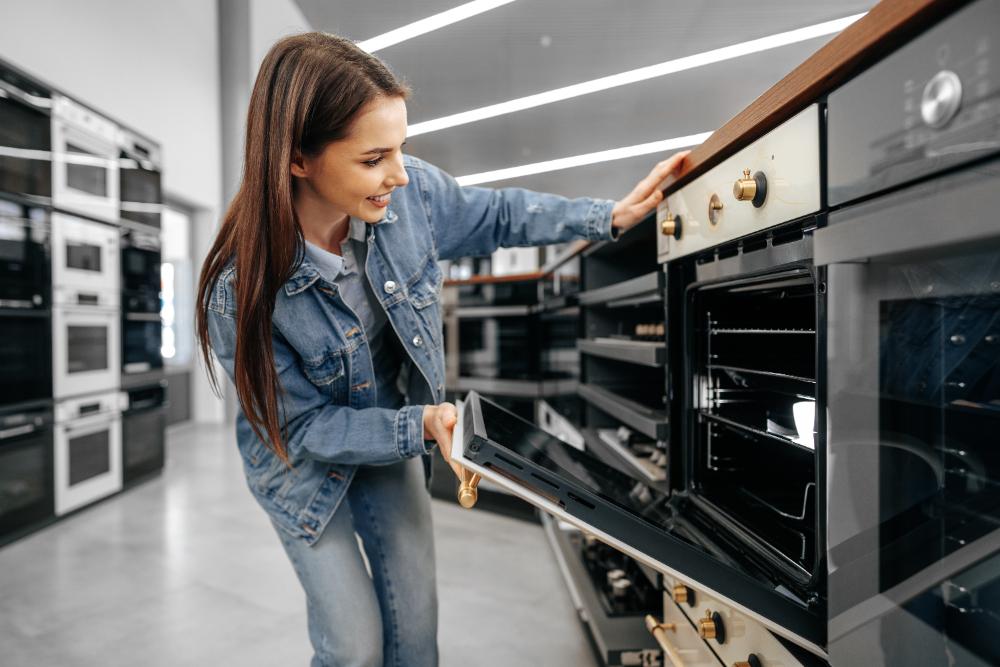The Impact of Local Culture on Appliance Stores in the Philippines

The appliance stores in the Philippines are lively and switching up its marketing tactics. This mirrors the country's diverse cultural background and swift economic progress. With more Filipinos entering the middle class, they are feeling optimistic about their financial futures. This has led to a notable increase in the demand for household appliances.
Now, we will get into the ways local culture shapes appliance retailers in the country. This article aims to bring awareness regarding consumer behavior and what influences it. We'll also talk about how stores strategize, and what trends emerge in the market. For retailers looking to succeed in this competitive industry, grasping these cultural subtleties is a necessity.
Economic Growth and Retail Opportunities
Current Economic Landscape
Over the last ten years, the Philippines has seen growth in its economy. Recent data shows that the country’s GDP is on a steady rise, fueled by remittances from overseas Filipino workers (OFWs) and an expanding service industry. This economic boom has resulted in a burgeoning middle class that is increasingly eager to invest in modern conveniences (household appliances).
As of October 2024, there are around 2,827 known appliance shops nationwide. This indicates a strong upward development in the retail industry. It opens up substantial opportunities for both local and international brands to make their mark in the market. What's more, major players like SM Group and Ayala Corporation are strategically strengthening their positions by acquiring smaller businesses. They recognize that these local stores are essential to community life.
Retail Sector Dynamics
The Philippine retail market is a blend of large chains and smaller local shops. While big retailers dominate urban centers, smaller appliance shops are present in rural areas. These local shops not only make essential products accessible while nurturing a sense of community. Also, approximately 75.27% of these stores are single-owner operations. It emphasizes the significance of local entrepreneurship in catering to consumer needs.
To top it off, the rise of e-commerce has certainly impacted traditional retail dynamics. That being said, many Filipino shoppers still prefer visiting physical stores. This is mainly due to their cultural inclination for personal interaction and the opportunity to inspect products firsthand. This means there is a necessity for these retailers to maintain a strong local presence.
Cultural Significance of Local Stores
Community-Centric Shopping Habits
In the Philippines, shopping often becomes a social affair that strengthens community bonds. Sari-sari stores (small neighborhood convenience shops) are perfect examples of this cultural trend. These establishments are where locals gather to chat and shop for everyday necessities.
The importance of local relationships is paramount when it comes to making purchasing decisions. Filipino consumers tend to favor familiar and trusted stores. This cultural tendency towards community-oriented shopping influences how retailers conduct business. Many prioritize building strong relationships with customers through personalized service and community involvement.
Integration of Cultural Values in Retail Strategies
Retailers are increasingly aware of the need to align their marketing strategies with local customs and values. Successful retailers often integrate cultural elements into their branding and customer interactions. For example, some stores celebrate local festivals or sponsor community events, reinforcing their dedication to the neighborhoods they serve.
On top of this, product offerings are frequently customized to cater to local tastes. For instance, appliances designed for traditional cooking methods or compact living spaces tend to resonate more with Filipino consumers. This boosts customer loyalty and drive more sales.
Trends in Consumer Behavior
Preference for Physical Shopping Experiences
Despite the global rise of online shopping, many Filipino consumers still gravitate towards physical retail experiences when buying appliances. Customers often want to see, touch, and test products before making a purchase.
This trend is especially noticeable among older generations who may feel less comfortable with online transactions. These are the individuals who value face-to-face interactions with sales staff. Therefore, retailers should take this preference into account by creating welcoming store environments. This way, it encourages customers to explore and engage with products.
Financial Innovations and Accessibility
Another key trend influencing consumer behavior is the emergence of financial innovations. These are designed to improve access to appliances. The "Buy now, pay later" schemes have gained popularity among Filipino shoppers who might not have immediate cash available.
These payment methods allow individuals from various income brackets to purchase better appliances without straining their budgets too much. Consequently, retailers have flexible payment plans. These can attract a wider customer base while building brand loyalty.
Key Takeaway
Local culture and economic trends have a significant role in shaping the market of appliance stores in the Philippines. Retailers are adapting their strategies to resonate with cultural values while embracing modernization. They've effectively positioned themselves to meet the changing needs of Filipino consumers.
Understanding these cultural details—ranging from community-oriented shopping habits to preferences for physical experiences—is vital for success. In an increasingly competitive market, those who can successfully integrate local culture into their business will likely thrive. This allows them to navigate the complexities of consumer behavior within the Philippine appliance market.
- Art
- Causes
- Crafts
- Dance
- Drinks
- Film
- Fitness
- Food
- Spellen
- Gardening
- Health
- Home
- Literature
- Music
- Networking
- Other
- Party
- Religion
- Shopping
- Sports
- Theater
- Wellness


